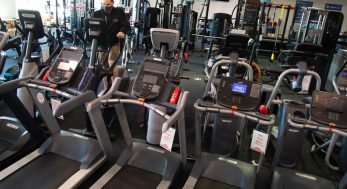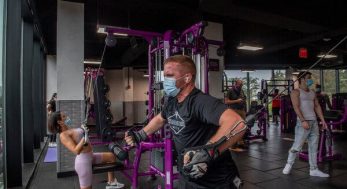
Philip F. Skiba
Medical director for sports medicine at Advocate Health Care
The injury:ACL Tear
The prevention:Bend your knees
“With a complete rupture, where you tear the sucker through and through, it’s typically a one-shot deal, like trying to make a one-step stop, a sudden change in movement, or jumping and landing with a straight knee and hip. So when you’re coming down from a jump, avoid doing so like a pogo stick: Flex your knees and hips. And when you’re playing a game like soccer, take rounded turns rather than stop-start or right-angle. Balance training and plyometric exercises — like a wobble board or box jumps — help you distribute your weight better, which in turn makes you more nimble on your feet and prevents you from putting too much stress on the knee joint.”

Vishal M. Mehta
Sports medicine surgeon at Amita Health St. Joseph Hospital, Elgin
The injury:Rotator Cuff Tear
The prevention:Rest your shoulder
“Most tears are degenerative due to the miles we put on the rotator cuff as we age. It needs time for rest and recovery. Diversify which sports you play and avoid the glamorous bench press and lateral pulldown — especially when your arms are already fatigued—and instead strengthen and stretch with resistance bands. We tell professional pitchers to do the sleeper stretch, which involves lying on your side with your upper arm on the ground at a 90-degree angle and pushing, with the other arm, your forearm down gently. It maintains your shoulder’s ability to rotate. There are also certain no-noes. Instead of reaching from the front seat to the back to grab something, get out and go around. Keep your elbows by your side when you lift something heavy. And stop the swinging motions with kettlebells.”

Monica E. Rho
Chief of musculoskeletal medicine at Shirley Ryan AbilityLab
The injury:Sciatica
The prevention:Lean back
“The positions that create the most pressure on the disks in your lower back, which is what causes sciatica, all have one thing in common: leaning forward. So I tell people to lean backward. When you think about your life, when are you ever leaning backward? There’s no such thing as tummy time for adults. Bad positions include crunches or learning forward with weights in your hands, like in a dead lift, or even just leaning forward as you sit. A lot of us are in a bad chair these days because we’re working from home. That will increase pressure in the disk. Get up every hour and bend backward while standing. Or do a pushup, but one where you keep your pelvis and legs on the ground — in yoga, it’s called the cobra pose. Boosting overall core strength helps protect the back during dynamic movement, too.”

Jennifer M. Wolf
Orthopedic surgeon at UChicago Medicine
The injury:Tennis Elbow
The prevention:Ease into new activites
“Tennis elbow is a poorly understood condition. It’s not inflammation, so you can stop taking Motrin. We have no good idea of why it occurs, thus it is hard to prevent. But basically it is the overuse of the aging elbow and occurs most commonly in middle-aged people, often doing some activity that their muscles and muscle origin at the elbow are not used to. You demand something of the tendon, and it can no long deliver. So don’t start an activity you haven’t done for a long time and then do it for eight hours. Give your joint muscles a chance to adapt. And stretch your wrist in both directions before and after exercise, which flexes and extends the origin of the elbow tendon.”

Laura Lemke
Orthopedic surgeon at Ann & Robert H. Lurie Children’s Hospital of Chicago
The injury:Plantar Fasciitis
The prevention:Seek a softer path
“When running, it is important to increase distance gradually and to wear proper shoes with good arch support. Stretch your Achilles tendon before and after exercise, either by standing with your foot flat on the ground and squatting or by bending forward with your leg straight. Regularly ice your heel 20 to 30 minutes, three times per day. Running on softer surfaces like trails is better, as they’re more forgiving and will lessen the impact. Even running on asphalt is better than on concrete.”

